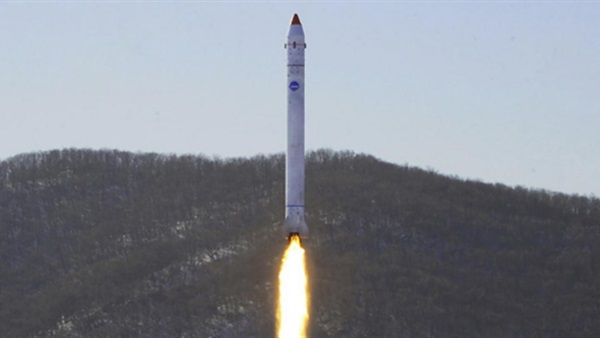North Korea tests spy satellite from Kim Jong-un’s military ‘wish-list’

North Korea has conducted an “important, final phase” for the development of a spy satellite that it hopes to complete by April, according to its state media.
The report comes a day after South Korea and Japan said that Pyongyang launched two ballistic missiles toward the Sea of Japan.
The National Aerospace Development Administration carried out the test at its Sohae satellite launching station to review its capabilities in satellite imaging, data transmission and ground control systems, according to the Korean Central News Agency (KCNA).
A vehicle carrying a mock satellite, a 20m-resolution full-colour camera, two multi-spectral cameras, image transmitters and receivers, a control device and a storage battery was fired at a loft angle to an altitude of 310 miles.
“We confirmed important technical indicators such as camera operating technology in the space environment, data processing and transmission ability of the communication devices, tracking and control accuracy of the ground control system,” a spokesman for the administration said.
KCNA also sent out low-resolution, monochrome images of Seoul and the port of Incheon, apparently taken during the launch yesterday. Japan’s defence ministry said that the two missiles fell outside Japan’s exclusive economic zone.
Kim Jong-un, the North Korean leader, said in January last year that military reconnaissance satellites were on a wish list of advanced arms including solid-fuelled long-range missiles. Ankit Panda of the Carnegie Endowment for International Peace, said that a full-scale orbital satellite launch could occur around April 15, the birthday of North Korea’s founder, Kim Il-sung.
Last week North Korea said it tested a solid-fuel rocket motor, a move that could accelerate its development of advanced missiles. The test followed a series of missile launches.
“North Korea continues to blaze forward on improving its strategic weapons capabilities,” said John Delury, a professor at Yonsei University’s Graduate School of International Studies in South Korea. “They have little to lose in terms of carrots or sticks: more sanctions, for example, are unlikely to make a dent in an economy that has isolated itself like North Korea has over the past three years.”





